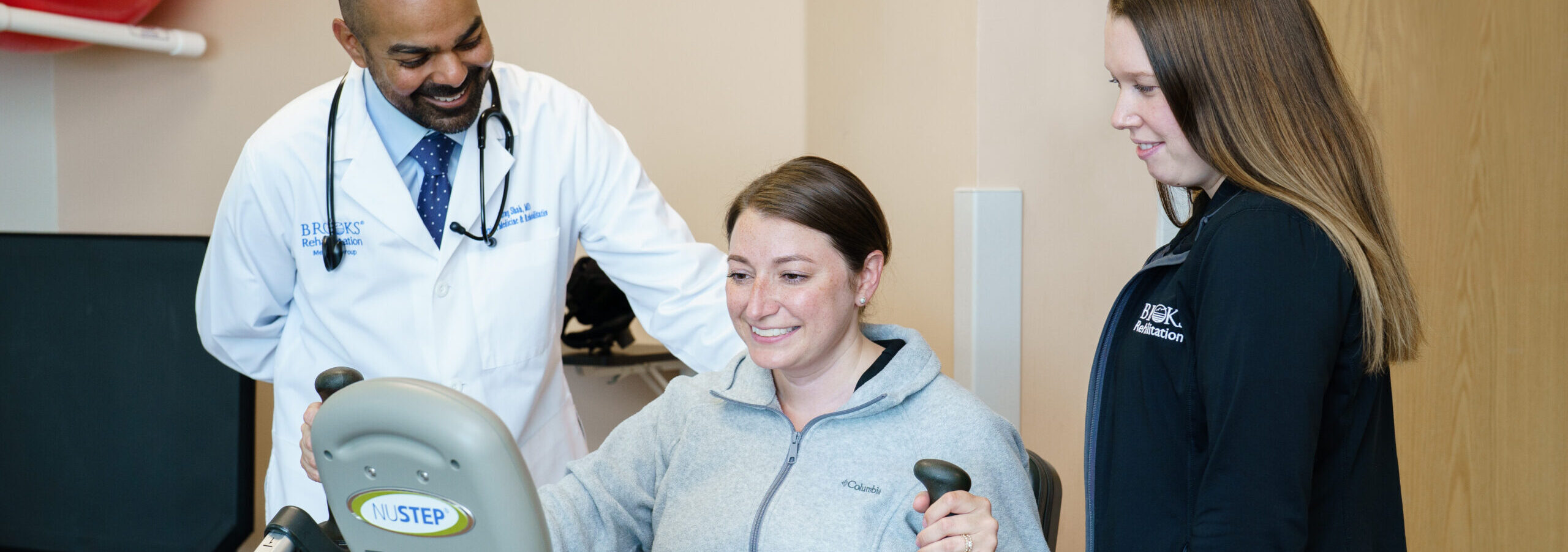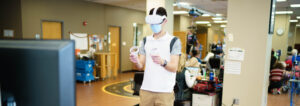With Bartram Opening, Brooks Transplant Rehabilitation Program Continues to Expand

Back to physical health resource hub
In his previous work with Brooks, Parag Shah, MD, began our Transplant Rehabilitation Program, which specifically caters to the rehabilitation needs of transplant patients once they’re discharged from acute care. Now, as Medical Director of the Brooks Rehabilitation Hospital – Bartram Campus, Dr. Shah will continue to grow the program at Bartram and for the entire Brooks system. Helping him will be Adam Francis, RN, MSN, the new Director of Nursing for Brooks Rehabilitation Hospital – Bartram Campus. Francis began his nursing career on a transplant floor at the Mayo Clinic in Jacksonville.
“Taking our Transplant Rehabilitation Program to the next level is all about delivering the full package,” said Francis. “We will present all that we can offer the patient, as well as the benefits available to the referring institutions. It’s important to show the functional gains that we can give these patients, and what we can show as far as our outcome measures – how much these patients improved in our care.”
Transplant patients have different needs – and there’s a different strategy to the rehabilitation – than with more traditional rehab patients. “Most of these patients have been in the ICU. Some of them are literally on death’s door when they get their transplant. It’s very traumatic,” said Francis. “With a heart transplant you’ve had your sternum cracked open, and there are certain restrictions on how you can and can’t use your arms and move around. It’s knowing all that and knowing how far you can push a patient in therapy. We’re ensuring our staff get the right education from the transplant experts so we can continue the best rehab care.”
After their transplants, patients are also dealing with new ways of life – such as new medications, diet restrictions, new regimens to keep themselves healthy and safe – all of which their therapists also need to know. In addition, patients may be experiencing mental health issues, whether through the stress of their situations or even from their medications. Brooks clinical neuropsychologist Katie Scott, PhD, currently sees Brooks transplant patients for these issues and will be stationed at the new Bartram hospital.
Francis notes that there is very little clinical research literature available on rehabilitation for transplants. However, with Brooks’ research expertise and assets, Francis knows it’s just a matter of time. “We’ve already engaged with Brooks’ Institute of Higher Learning (IHL),” said Francis. “They’re already doing a lot of work for us, finding evidence-based research related to transplant. We’re finding that there really hasn’t been a lot of research that’s rehab specific. – and there really isn’t. But again, this is another way that Brooks is going to pave the way for the future of rehab, knowing that no one else has really done this work yet.”
A COVID ripple effect
“Last year, during the pandemic, there was a 22.6 percent decrease in living-organ transplants – a drastic drop. There’s over 113,000 people currently on a waiting list for transplant in the US. A lot of these people, especially with their comorbidities and just by being sick during the longer wait, have deconditioning from muscle tone loss. Many of these patients would make great candidates for intense rehab even prior to transplant, as well as post-transplant.” – Adam Francis, RN, MSN


